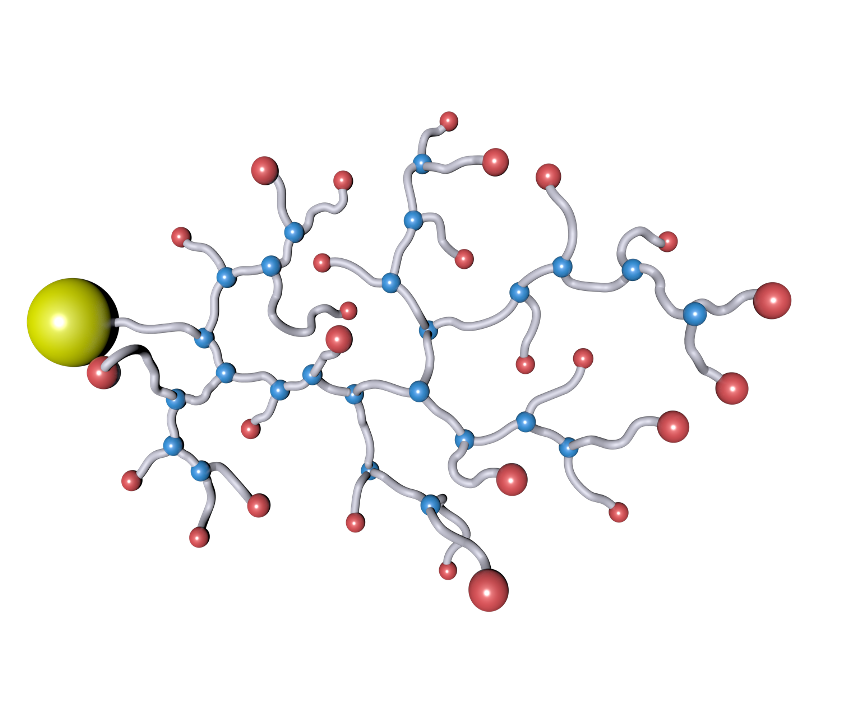Exploring the Varied Applications and Advantages of Polymers in Different Industries
Polymers, with their varied range of residential properties and capabilities, have actually come to be crucial in numerous sectors, each reaping special benefits from their application. From boosting security and performance in the vehicle sector to revolutionizing medical gadgets in the healthcare market, polymers play a pivotal function.
Automotive Sector Applications
Polymers play a crucial function in enhancing the efficiency and toughness of various elements within the automotive field. These versatile products are thoroughly made use of in the manufacturing of various components, ranging from indoor components to under-the-hood applications. One noticeable use polymers in the vehicle industry is in the production of light-weight parts. By changing typical steel parts with polymer-based choices, automobiles can attain improved fuel effectiveness without endangering on strength or security.

Healthcare Market Advantages
In different medical care applications, the advantages of using polymers are commonly acknowledged for their varied array of useful residential properties. Polymers play an important function in the health care sector as a result of their flexibility, biocompatibility, and cost-effectiveness. One of the main benefits of polymers in medical care is their capacity to be customized to certain needs, such as versatility, sturdiness, and biodegradability, making them optimal for a broad variety of clinical applications.
Polymer-based materials are extensively used in clinical tools, such as catheters, implants, prosthetics, and medication shipment systems, because of their biocompatibility and ability to mimic all-natural cells. These products can reduce the threat of allergies or rejections, enhancing patient safety and outcomes. In addition, polymers are lightweight, making them ideal for wearable clinical devices and making sure individual convenience.
Moreover, polymers enable the growth of innovative therapy methods, such as hydrogels for cells design and nanocomposites for targeted medicine shipment. Their ease of processing and sanitation makes them vital for keeping high criteria of health in healthcare setups. Overall, the diverse benefits of polymers add substantially to advancements in medical modern technology and client treatment.
Ecological Benefits of Polymers

Furthermore, polymers can add to power financial savings due to their light-weight nature. In industries such as transportation, lightweight polymer materials can help in reducing gas intake and greenhouse gas exhausts. Additionally, polymers can enable the advancement of energy-efficient items such as insulation products that enhance energy preservation in structures.
Moreover, polymers play a vital duty in lowering water contamination. For instance, the usage of polymer-based filtering systems can successfully get rid of pollutants and pollutants from wastewater, securing water sources and environments. Generally, the environmental benefits of polymers make them useful properties in promoting sustainability and eco-friendly techniques throughout different industries.
Polymers in Electronic Devices and Modern Technology
Considering the increasing need for ingenious and sustainable remedies in modern-day markets, the assimilation of advanced polymer technologies in the world of electronics and technology has actually emerged as an essential method for driving efficiency and efficiency. Polymers have revolutionized the electronic devices market by enabling the manufacturing of lighter, a lot more flexible, and sturdy electronic tools. From smart devices to medical tools, polymers play a critical duty in improving item style and functionality.
One considerable advantage Get More Information of polymers in electronics is their protecting properties, which assist shield delicate digital components from environmental variables and electric interference. In addition, polymers are important in the growth of flexible screens, wearable modern technology, and printed electronics, supplying limitless possibilities for developing smart and interconnected devices.
In addition, the use of polymers in electronic product packaging has actually resulted in innovations in miniaturization and thermal management, improving the general efficiency and dependability of digital systems. As technology remains to progress, the use this link convenience and adaptability of polymers will undoubtedly drive even more innovation in the electronics market, shaping the future of innovation.
Duty of Polymers in Building And Construction and Framework
The integration of sophisticated polymer products in building and construction and framework projects has transformed the means structures are developed and integrated in modern times. Polymers offer many benefits in the building market due to their flexibility, durability, and cost-effectiveness. One key duty of polymers in building and construction is their usage in finishes and sealers, supplying protection versus ecological aspects such as wetness, UV radiation, and corrosion. Additionally, polymers are utilized in the manufacturing of lightweight and high-strength composite products, improving the structural honesty of structures while minimizing total weight.
In addition, polymers play a vital duty in sustainable building techniques by enabling the development of energy-efficient frameworks. Insulating materials made from polymers assist regulate indoor temperatures, minimizing the demand for home heating and cooling down systems and ultimately lowering energy intake - Polymers.
Conclusion
In final thought, polymers play an essential role in numerous markets such as automobile, healthcare, ecological, electronic devices, look at this web-site and building. From enhancing fuel performance in automobiles to improving clinical tools, polymers provide various advantages.